Space
Sign up for our newsletter
We summarize the week's scientific breakthroughs every Thursday.
-
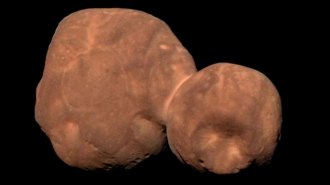 Space
SpaceNASA gave Ultima Thule a new official name
The distant world briefly visited by New Horizons is now called Arrokoth, a Powhatan word that means “sky.”
-
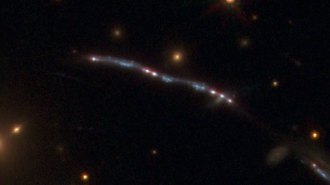 Space
SpaceLight leaking from a distant galaxy hints at a cosmic makeover’s origins
Ultraviolet light slips through a hole in a distant galaxy’s gas. Older galaxies might have used the trick to ionize most of the universe’s hydrogen.
-
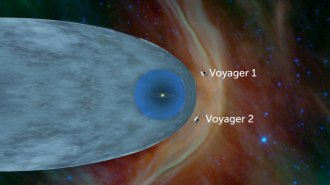 Space
SpaceVoyager 2 reveals the dynamic, complex nature of the solar system’s edge
With two spacecraft outside the sun’s magnetic bubble, researchers get a new look at the boundary between the sun and its galactic environment.
-
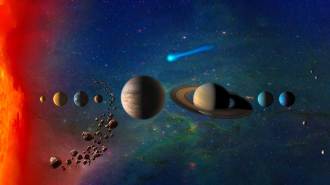 Space
SpaceRules guarding other planets from contamination may be too strict
Voluntary international guidelines for visiting the moon, Mars and other places — and for bringing stuff back to Earth — are overly cautious, scientists say.
-
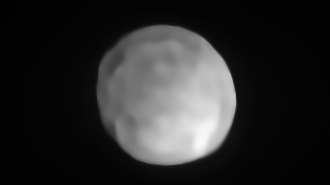 Space
SpaceThe solar system may have a new smallest dwarf planet: Hygiea
New images reveal Hygiea is round, a final criterion for promoting the wee world from asteroid to dwarf planet status.
-
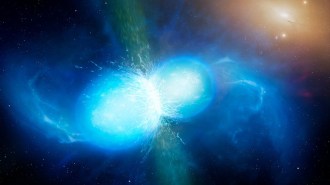 Space
SpaceStrontium is the first heavy element detected from a neutron star merger
The discovery of strontium created inside a neutron star smashup gives the clearest picture yet of what goes on inside this chaotic environment.
-
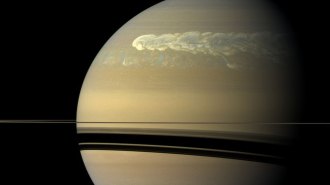 Planetary Science
Planetary ScienceAstronomers have spotted a new type of storm on Saturn
In 2018, telescopes on Earth and in space identified a never-before-seen kind of storm activity on the ringed planet.
-
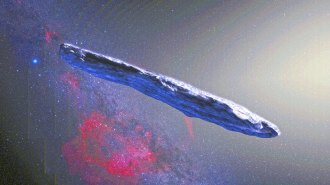 Space
SpaceHow the second known interstellar visitor makes ‘Oumuamua seem even odder
With its gaseous halo and tail, the second discovered interstellar object, 2I/Borisov, looks basically like your run-of-the-mill solar system comet.
-
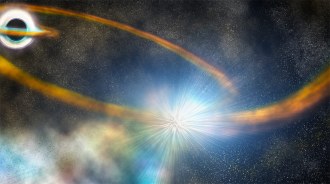 Space
SpaceA supermassive black hole shredded a star and was caught in the act
Astronomers have gotten the earliest glimpse yet of a black hole ripping up a star, a process known as a tidal disruption event.
-
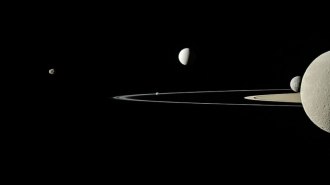 Space
SpaceWith 20 new moons, Saturn now has the most of any solar system planet
The discovery brings Saturn’s moon tally to 82. The previous record-holder, Jupiter, has 79.
By Sofie Bates -
 Physics
PhysicsPhysics Nobel awarded for discoveries about the universe’s evolution and exoplanets
Three scientists share the 2019 Nobel Prize in physics for revealing what makes up our cosmos and for finding the first planet orbiting a sunlike star.
By Emily Conover and Lisa Grossman -
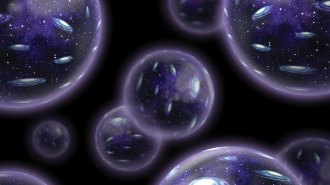 Cosmology
CosmologyA new book explores how the concept of the multiverse has evolved
Tom Siegfried, author of ‘The Number of the Heavens,’ discusses what the multiverse has meant to great thinkers throughout history.